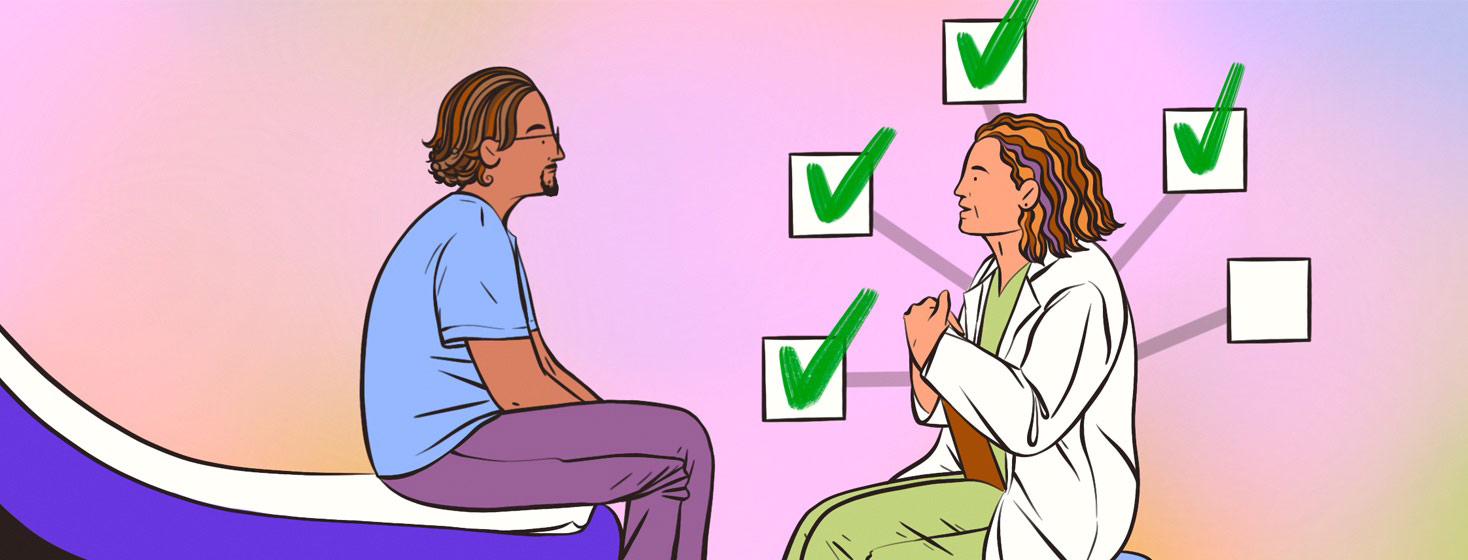Finding a Doctor Who Understands MG
Reviewed by: HU Medical Review Board | Last reviewed March 2023 | Last updated: May 2024
There is a need for better disease management for myasthenia gravis (MG). According to a 2022 report, people with MG had the same number of symptoms after treatment as they did when they were first diagnosed, though they may be less severe or frequent, or they might experience different symptoms altogether.1
While treatment helps lessen severity of symptoms, many people with MG still report muscle weakness, fatigue, anxiety, and depression after treatment. More than one-third of people in the study needed treatment for an MG crisis. This highlights the need for better control of ongoing symptoms.1
The authors of this study wanted a general picture of MG treatment. The study included primary care doctors, as well as specialists. This may have resulted in an incomplete picture of how MG is managed. They recommended a follow-up study focused on MG specialists.1
Doctors who specialize in MG
Neurologists and neuromuscular specialists are the experts in treating MG. Neurologists treat disorders of the brain and nervous system. They can help with a variety of MG symptoms. Neuromuscular specialists focus on conditions like MG that affect the nerves and muscles.2,3,4
These specialists understand how MG affects every part of your life. They are up to date on the latest treatments. They know the complications the condition can cause. The right provider will work with you to ease your symptoms. The doctor will view you as an individual, not a diagnosis.2,3,4
Searching for a MG provider
No matter where you are in your MG journey, you can find a neurologist and neuromuscular specialist who fits your needs.5
The Myasthenia Gravis Foundation of America (MGFA) has a search tool to help you find an MG specialist. To be listed, the doctor must be approved by the organization's Partners in MG Care council. The doctor must have experience working with people with MG.5
You can search for a doctor by specialty, city, and state. You can also search for a doctor whose focus is pediatric neurology if you have a child with myasthenia gravis. If there is no approved MG doctor near you, you can reach out to the MGFA for help.5
If you don't want to use the MGFA search tool, you can ask your primary care doctor for a recommendation. Your insurance company should have a list of specialists who accept your health plan. Other people with MG can be a resource. Friends or coworkers might have a connection. Use your network to locate a specialist in your area.6
Preparing for your appointment with the specialist
To get the most out of your visit, prepare ahead of time. This may include:7
- Bringing a list of all your medicines. Include over-the-counter medicines and supplements.
- Making sure you have your insurance card and a valid ID.
- Asking someone to come with you to the visit. They can take notes and be a source of support.
- Writing down all your questions and concerns. You may be nervous and forget an important point.
Your first visit to the neurologist or neuromuscular specialist
You deserve to work with a neurologist or neuromuscular specialist who suits your needs. To see if the MG specialist is a match, take note of whether the doctor:5
- Treats you with respect
- Allows you the time to explain your medical history
- Encourages you to ask questions
- Explains things in a way you understand
- Gives you a thorough exam
Steer clear of doctors who dismiss your concerns or rush you through your appointment. MG is a complex and unpredictable condition. A doctor who values your time and listens to your concerns will be the best partner in your care.6

Join the conversation